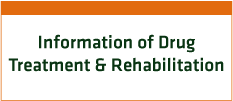Prevention of spread of HIV amongst most at risk prisoners in Bangladesh
Project Introduction:
The purpose of this project is to prevent the spread of HIV among most at risk prisoners by providing comprehensive HIV, TB and Reproductive Health Care in Kashimpur Central Jail I, II, &III (Female) through evidence based and gender sensitive approaches. The beneficiaries of the project are citizens who come into contact with the criminal justice system, in particular people living in poverty, women, children, juveniles, and persons with disabilities. These groups of the population experience discrimination and at-risk groups in their access to justice in the formal as well as the informal justice system due to their limited access to health education including reproductive health, HIV, TB, employment, education, and information. Total 4818 prisoners, 65 Prison Authority/staffs (13 Central Jails) and 230 medical staffs (68 prisons) of prisons will be benefitedbesides prisoners through this project.
Overall Objective:
Overall: there are three other factors: 1) transitioning between injecting and non-injecting drug use; 2) high levels of the population mixing between vulnerable groups and mainstream society; and 3) suppressed immunity of drug users due to use of drugs has made this population vulnerable to infectious diseases such as STIs, HIV, Hepatitis B and C, and Tuberculosis.
Specific Objectives:
The specific objectives of this project is to strengthen capacity of prison authorities, prisoners and community based organization-to address HIV-prevention, treatment, care and support in prison. Considering the country scenario of prison the proposed project will not only cover project objectives but also achieve all objectives of National Strategy Plan of HIV/AIDS and reduce transmission in Prison.
This project will contribute directly toward preventing spread of HIV among high-risk group through this project. The behaviours of most risk people/drug users in prison will be changed gradually and it will help to prevent spread out of HIV among high risk prisoners, which will indicate that intervention effectiveness. Moreover, through the different training, communication and advocacy activities, the project will bring about evidence based and sustainable changes in the knowledge, attitude and practices of the prisoners, which will ultimately lead to a significantly reduced risk of spread of HIV and other related risk like TB in Bangladesh.
Project Components: Online training, Peer educator training
Major Activities:
- DAM will develop 1,500 leaflet, 150 pcs flipcharts for peer educators, 204 copies handbooks for prison medical staffs and 13 signboards on HIV, hepatitis B & C, reproductive health, TB and STIs etc in central prison.
- DAM will organize 3 batch online training
- 6 peer educator trainings in Kashimpur central jail-I, II and III.
- Online trainings will be provided to the prison medical staffs in 68 prisons on HIV, TB and reproductive health.
Project Participants (Direct):
|
Children(0-10) |
Adolescent(11-17) |
Youth(18-25) |
Adult(26-60) |
Senior Citizen(61+) |
|||||
|
M |
F |
M |
F |
M |
F |
M |
F |
M |
F |
|
|
|
|
|
|
|
4277
|
836
|
|
|
Project Duration: 1/1/2021 to 31/12/2021
Financial partner (Donor): UNODC
Project Location/s and number of Field offices: In Kashimpur Central Jail I, II, &III (Female) through evidence based and gender sensitive approaches.
Contact Person:
Name & Designation: Md. Shahedul Haque
Project Officer
Email: Shahedul@amic.org.bd
Cell : 01768757575






